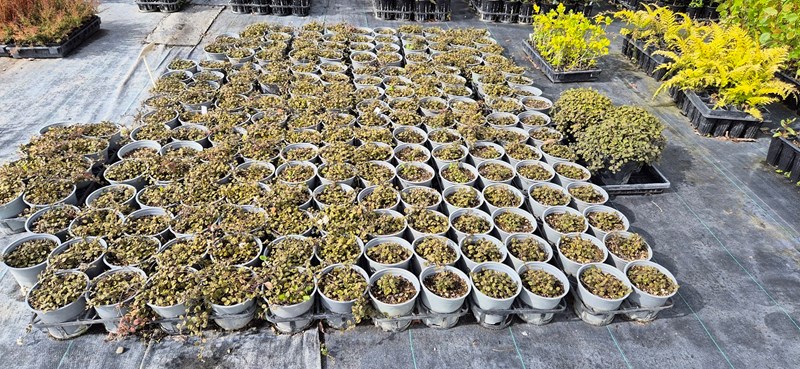
Rare Forget Me Not, not so rare
One of New Zealand’s most endangered plants is looking like it might not be so rare after all thanks to the ongoing work by the Myosotis petiolata Recovery Group which includes Rayonier Matariki Forests, Department of Conservation (DOC), Plant Hawke’s Bay, Whirika consulting, Hawke’s Bay Regional Council, Ngati Hineuru, Te Papa and a number of nursery growers around the country.
The Myosotis petiolata – or Forget Me Not – was first discovered by RMF’s environmental manager, Andy Fleming, in one of its forests on the East Coast of the North Island in 2019.
Andy said that after finding the original very small but very healthy plant nestled in the grassy crevice of a limestone rock, a botanist discovered a second plant on the other side of the rock.
Since then, a propagation programme for the threatened, nationally critical plant has been established to preserve the species’ genetics, with seeds being harvested for future growth.
“DOC has been collecting seeds and cuttings of the three plants, amassing 700 plants in Plant Hawke’s Bay’s nursery at the beginning of the year,” says Andy. “A dozen of these plants were planted near the area where the first two plants were found, but away from the original site in case there was any bugs in them that could spread to the new cuttings. While we were planting out the 12 plants we found a third wild plant which has excited everyone,” explains Andy.
It is planned to plant another 80 seedlings back at the original site in Crohane Forest, as well as 100 in a neighbouring forest. There are also plants in Wellington and Otago to spread the risk in case of any infection from one plant to another.
“It is just as well we took this approach as 70 of the plants in an external nursery died due to a bug getting into them,” continues Andy.
Michael McCandless, Biodiversity ranger at DOC says the partnership established between Rayonier Matariki and DOC has been exceedingly successful in protecting this endemic species.
“We have reached the reintroduction stage of this conservation programme faster than expected by members of the recovery group, by virtue of the success of this working partnership.”
Plant Hawke’s Bay, which specialises in growing native plants for restoration, conservation, wetlands, farm planting and landscaping projects, has been integral to the success of the propagation programme. Managing director, Marie Taylor, said once they got the right growing conditions, plant numbers quickly increased.
“It took us a while to work out what they liked and didn’t like,” says Marie. “In the wild they grow in high altitudes and are subject to a lot of wind, so we had to trial the cuttings in various positions around the nursery before we got it right.”
Marie’s aim is to have so many of these special little Forget Me Nots growing in the wild that they are secure and reproducing naturally.
“Ideally it would be great to be able to offer them for sale to the public to ensure survival,” says Marie.”
